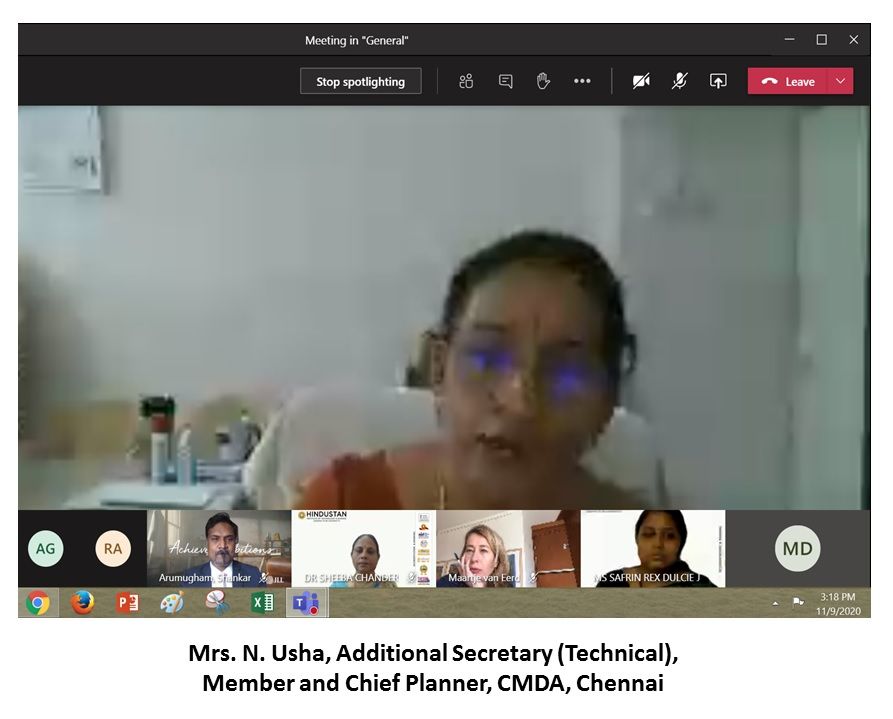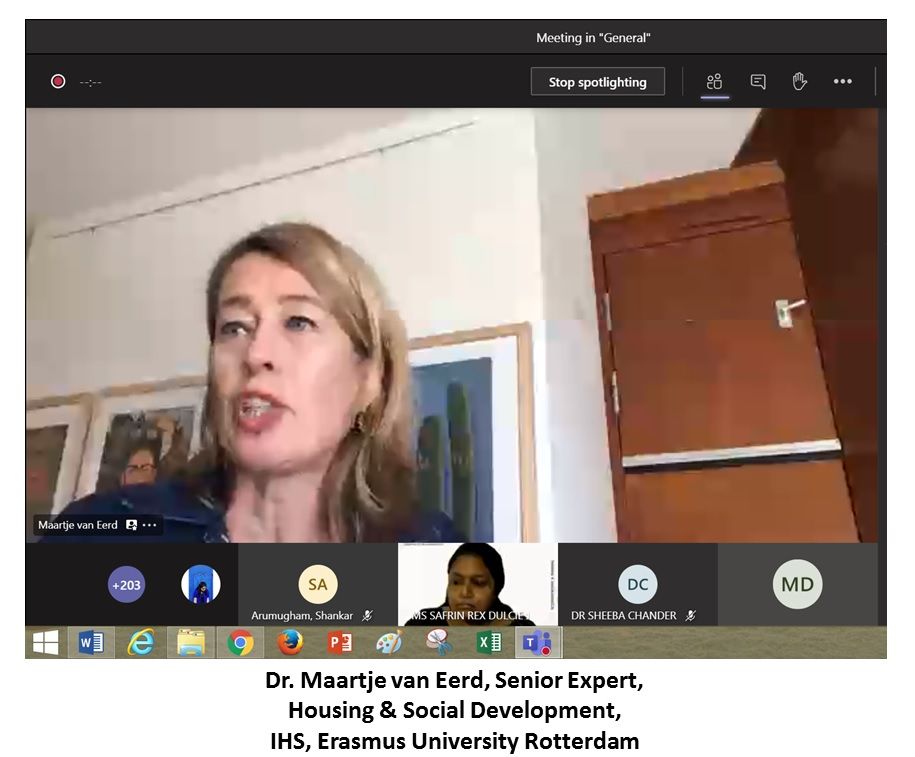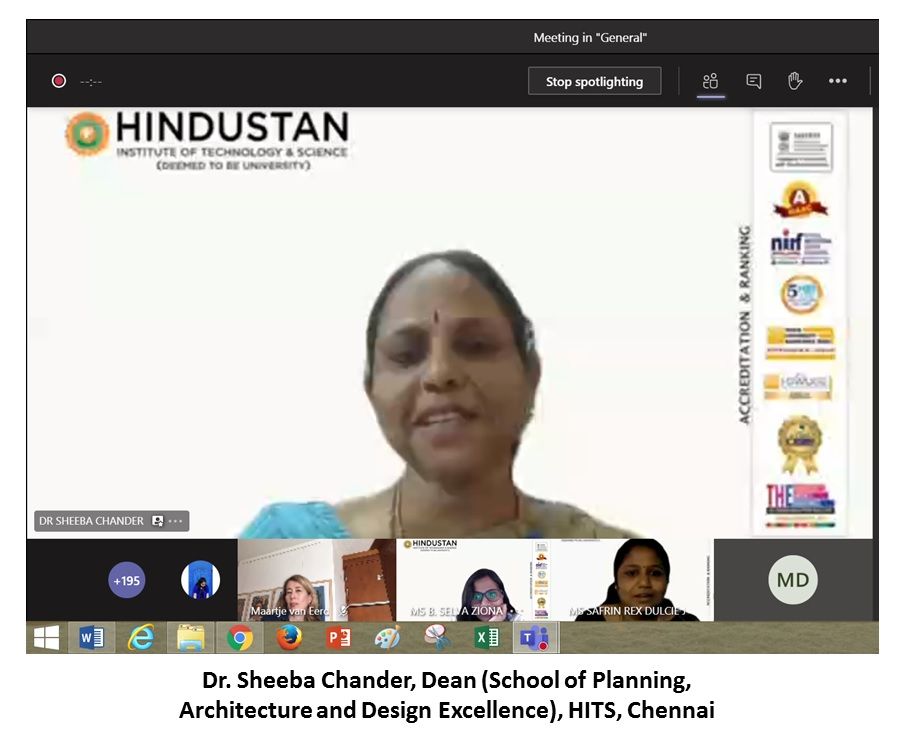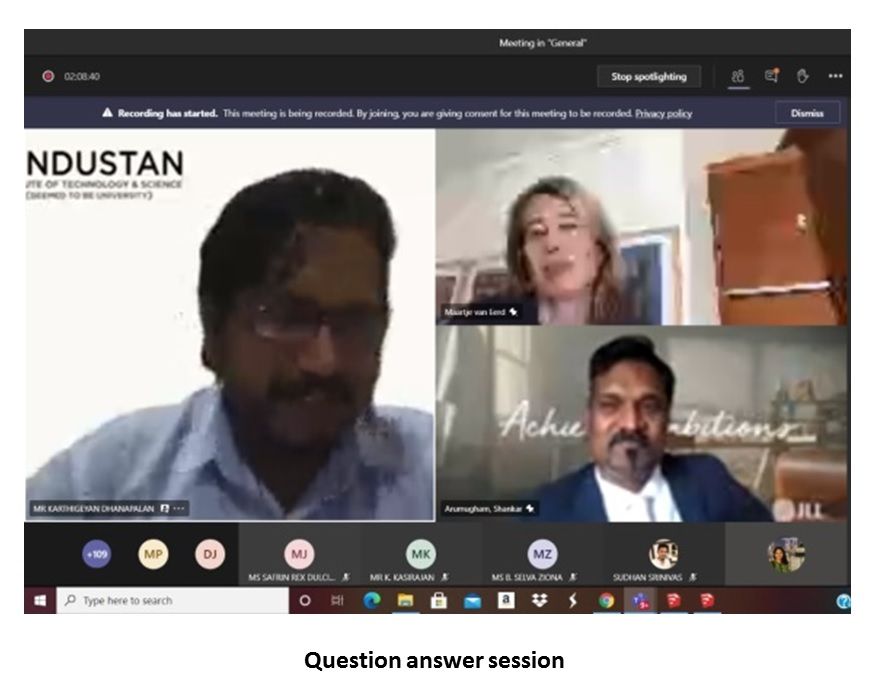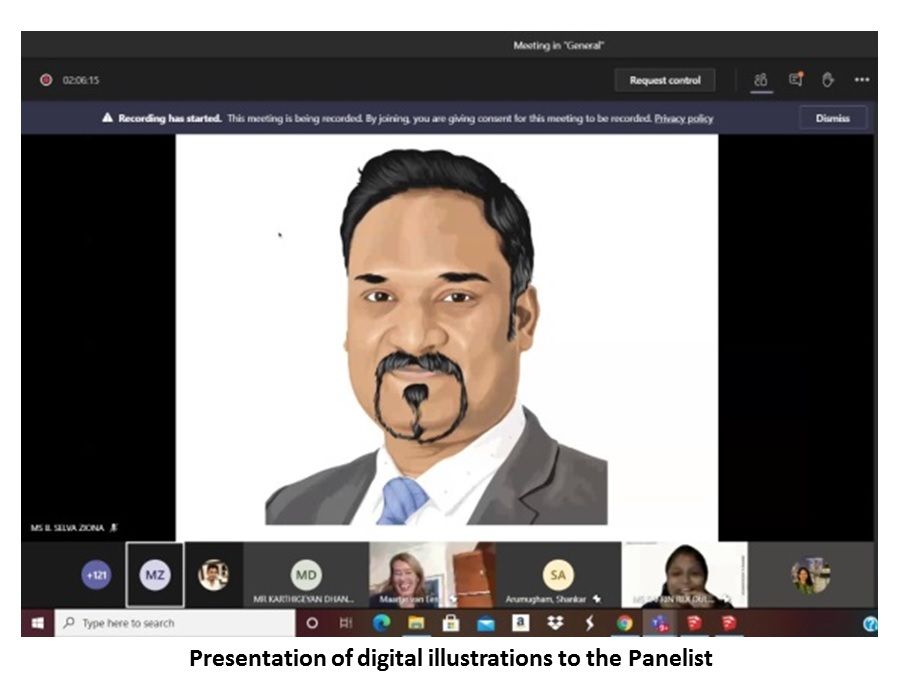-
- Back
-
- Back
-
- Back
-
- Back
-
- Back
-
- Back
-
- Back
-
- Back
Panel Discussion On“Equity, Diversity & Inclusion In An Era Of Covid
Panel Discussion On“Equity, Diversity & Inclusion In An Era Of Covid
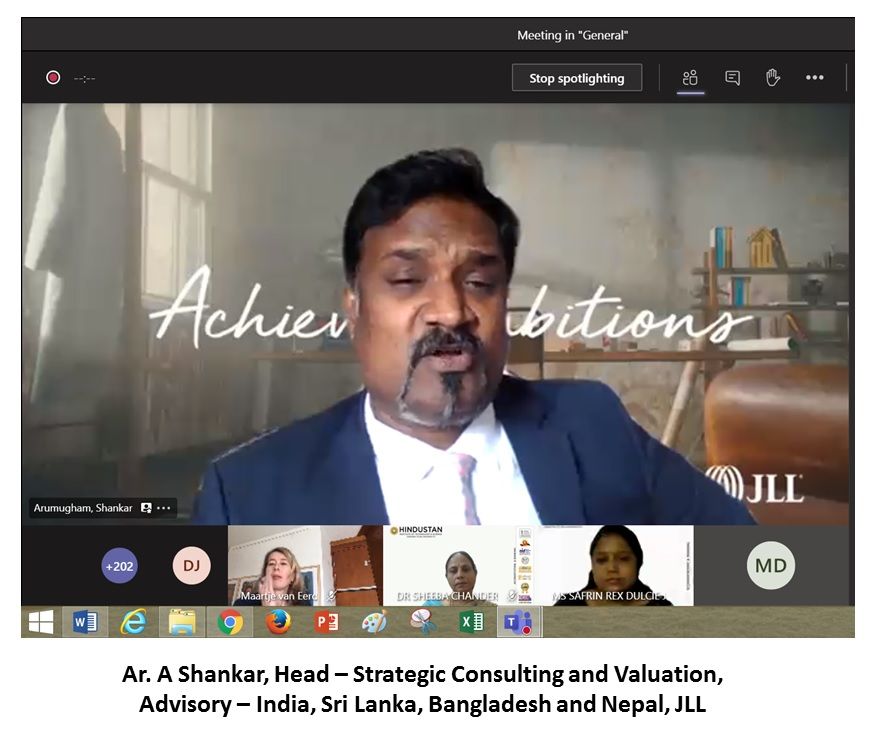
Panel Discussion On“Equity, Diversity & Inclusion In An Era Of Covid
World Town Planning Day is observed on 8 November, every year with the aim to promote the role of planning in creating livable urban communities. The School of Planning, Architecture & Design Excellence (SPADE) has organized a Panel Discussion on “Equity, Diversity & Inclusion in an Era of COVID” on 9 November 2020 as a part of Celebration of World Town Planning Day 2020.
PANELISTS
- Mrs. N. Usha, Additional Secretary (Technical),Member and Chief Planner, CMDA, Chennai.
- Ar. A Shankar, Head – Strategic Consulting and Valuation, Advisory – India, Sri Lanka, Bangladesh and Nepal, JLL.
- Dr. Maartje Van Eerd, Senior Expert, Housing & Social Development, IHS, Erasmus University Rotterdam.
- Dr. Sheeba Chander, Dean (School of Planning, Architecture and Design Excellence), HITS, Chennai.
MODERATORS
- Ar. Safrin Rex Dulcie, Professor, SPADE, HITS
- Ar. Selva ziona, Asst. Professor, SPADE, HITS
Ar. D. Karthigeyan, Associate Professor gave a brief introduction on the theme of the panel discussion and its relevance in current scenario. He also introduced the panel members and the moderators of the event.Mrs. N. Usha spoke on the various measures which can be undertaken by the Government of Tamil Nadu with respect to the current pandemic situation. She argued that the impact of COVID will be there in the third master plan of Chennai Metropolitan area, since the second master plan will end by 2026. She emphasized on the need to reduce human interface like in banking operation, income tax filling, etc., which should be enabled in government machineries, where currently government is not equipped for work from home culture, through which the travel need can be reduced. The pandemic have forced us to relook at the FAR/ FSI parameters, including giving incentives for redevelopment.
Ar. Shankarspoke on the change this pandemic has brought to the real estate sector, especially the IT office spaces in the city. He also deliberated on the compact city concept which is being worked out in Paris, France, that looks at cycling as one the best modes of travel during these pandemic situations. He also deliberated on the need for IndianSmart City initiatives to be more on the technological frontand the change in preferences of home buyer to accommodate a small study room within their apartment due to the prevailing situation.
Dr. Sheeba Chanderemphasized on the need to have empathy to the underprivileged people who are completely thrown out of their normal life due to the current pandemic situation. Also discussed about the unavailability of space in slums to maintain the minimum needed social distances and their vulnerability towards the spread of virus in their neighborhood and the need to work together for youth betterment in both mental health and technological innovation. She also spoke on the changing scenarios of planning education where a revampof planning curriculum is essential especially in utilizing more technology according to the industry needs by including rural studies, AR, VR, mental mapping, etc., since India requires 1 lakh planners by 2051.
Dr. Maartje Van Eerdspoke on the prevailing situation of the homeless people and their dependency on the government and other bodies like NGO’s and CBO’s in providing them with the basic minimum needs. She also emphasized on their current situation with respect to physical infrastructure services like water supply, sanitation facilities and security of tenure. As those people don’t have the resources to work from home or even to buy sanitizers to keep them secure from COVID. The panel discussionwas followed by the question and answer session. Ar. Safrin Rex Dulcie, Professor and moderator concluded the discussion with her remarks; and the entire panelists were presented with a digital image (illustration) of them made by the students of SPADE.
